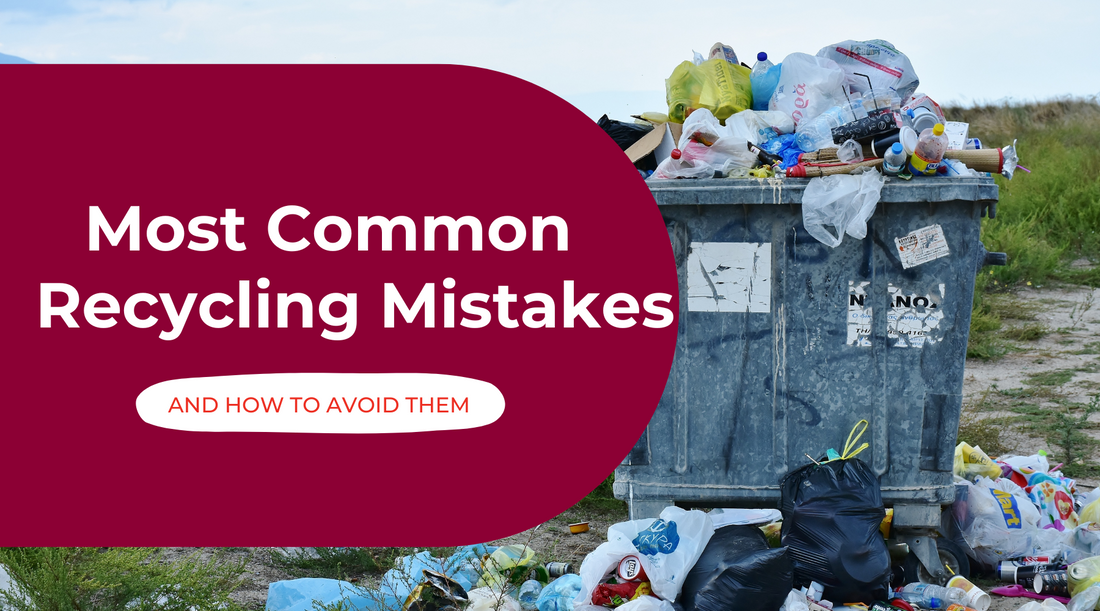
The 5 Most Common Recycling Mistakes, and How to Avoid Them
Recycling is an important part of reducing waste and preserving our planet. However, many people make common recycling mistakes that can actually hurt the environment rather than help it. In this blog, we'll discuss the 5 most common recycling mistakes and how to avoid them.
- Contamination
Contamination occurs when non-recyclable items are mixed in with recyclable ones. This can happen when people are unsure about what can and cannot be recycled, or when they are too lazy to properly sort their waste. Contamination can render entire batches of recycling useless and ultimately end up in a landfill.
How to avoid it: Before recycling, make sure to read up on what can and cannot be recycled in your area. Properly sort your waste and make sure that only recyclable items are put in the recycling bin.
- Plastic bags
Plastic bags are not recyclable in most curbside recycling programs. When they are mixed in with other recyclables, they can clog up machinery and cause damage to the recycling system.
How to avoid it: Rather than recycling your plastic bags, consider reusing them or bringing them to a grocery store that has a plastic bag recycling program.
- Dirty containers
Dirty containers, such as food containers with leftover food, can contaminate an entire batch of recycling. Food residue can also attract pests and create unpleasant odors.
How to avoid it: Rinse out containers before recycling them. If a container is too dirty, it's best to throw it away.
- Styrofoam
Styrofoam is not recyclable in most curbside recycling programs. It's lightweight and can easily break apart, causing litter and harm to wildlife.
How to avoid it: Avoid purchasing products that come in Styrofoam packaging. If you must use Styrofoam, consider reusing it or bringing it to a recycling center that accepts it.
- Putting recyclables in plastic bags
Recyclables should not be placed in plastic bags as they can cause problems during the sorting process. Instead, place items directly in the recycling bin or use a reusable container or paper bag.
Perhaps the biggest recycling mistake is not recycling at all. Many people still toss recyclable items in the trash out of convenience or lack of knowledge.
Always try to make a conscious effort to recycle. Set up a recycling bin in your home and make sure to properly sort your waste. Educate yourself and others on the importance of recycling and how to do it properly.
Recycling is an easy way to do your part in preserving the planet. By avoiding these common recycling mistakes, you can ensure that your efforts are not wasted and that you are truly making a difference.
